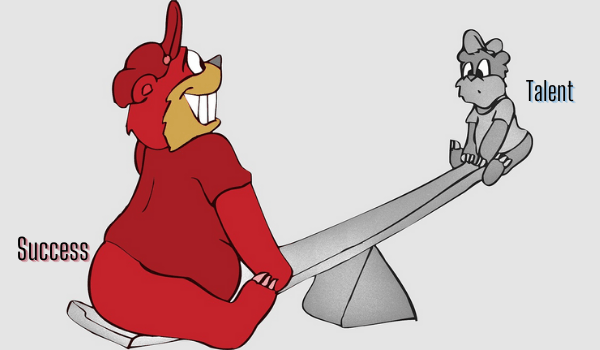Success and talent are as different as chalk and cheese. Simply being talented does not guarantee success. Organisations have no dearth of individuals who are go-getters and possess great talent, but not all of them go on to be successful. The success of the organisation, however, depends on both talented and successful employees, as both bring a lot to the table. While talented people are driven by the zeal to prove themselves, which makes them push harder, successful people use their past experience to propel growth and achieve targets. How does one differentiate between the two and decide which type is more important?
Talent and attitude
Sailesh Menezes, senior director & head of human resources, India Geography, Hewlett Packard Enterprise, explains that the key difference between the talented and the successful lies in the definition itself. Talent refers to aptitude and skill, while a large part of success comes from a person’s own attitude. Often these two words are used interchangeably, which does grave injustice to the comparison. “Talented employees are always a boon to an organisation, if they can combine their talents with the right attitude and work ethics. At the same time, there do exist individuals in organisations who may not be very talented, but possess the key ingredients to be successful,” Menezes shares.
“It is important that companies hire the right people through a well-thought out hiring process; on-board and train them in the areas of knowledge and skill; have the right supervisory framework to coach, provide feedback and course correct, and finally, use a fair method to deal with non-performance”
Richard Lobo, executive vice president, Infosys
He further elaborates that successful people possess a few key qualities that make them stand out, whether or not they are talented. They are extremely resilient and bounce back quickly; they possess a ‘yes I can’ attitude and they often work well with and through others.
Team work
What needs to be kept in mind is that it’s imperative for organisations to have people practices that nurture talented individuals into effective executives. Given the right environment and coaching, every individual with a desire to perform will transition to being an important part of the organisation.
Richard Lobo, executive vice president, Infosys is certain that no company can achieve results through individuals, no matter how talented they are. The success of a company rests on how various individuals with differing levels of talent get together as a team to work synchronously. This is what achieves lasting results.
“It is important that companies hire the right people through a well-thought out hiring process; on-board and train them in the areas of knowledge and skill; have the right supervisory framework to coach, provide feedback and course correct, and finally, use a fair method to deal with non-performance,” Lobo enunciates.
Success also translates into something one has done and achieved. Many a time, when one views people and their experiences, one looks at data points pertaining to circumstances that led to success. And learning from experiences itself, leads to success. In an organisation, therefore, it’s important to have a healthy mix of both talented and successful people.
“Talented employees are always a boon to an organisation, if they can combine their talents with the right attitude and work ethics. At the same time, there do exist individuals in organisations who may not be very talented, but possess the key ingredients to be successful”
Sailesh Menezes, senior director & head of human resources, India Geography, Hewlett Packard Enterprise
Harmonious mix
Anurag Verma, VP – HR, Uniphore, reveals why it is necessary to maintain that harmonious mix. “People who are young or are high potential but haven’t been tested yet, have a lot more zeal and fire to prove themselves. In any team, there should be high-potential employees who are sharp alongside tenured people. The talented individuals learn from the successful people, who in turn, get the zeal to compete with these new individuals. The complacency doesn’t set in because they are aware there’s always someone who can beat them,” explains Verma.
Furthermore, he adds that if a project is time bound, experienced people would know the amount of time required to achieve the goal and would stick to that. Those who wish to prove themselves, however, despite a shortage of time and resources, will stretch themselves to achieve it. “The ambitions of such high-potential people are way more than the resources provided to them. They will, therefore, make a difference, and that’s an advantage. Their fuel is self-propelment. They wait for that big opportunity to prove themselves, which is advantageous to the organisation,” Verma observes.
“The ambitions of such high-potential people are way more than the resources provided to them. They will, therefore, make a difference, and that’s an advantage”
Anurag Verma, VP – HR, Uniphore
Organisations that house a combination of talented and successful people will definitely earn rewards. After all, as a team, both these categories of people thrive on a symbiotic relationship at the workplace.




1 Comment
It is very difficult to differentiate between talent and success. A successful person is declared as successful based on what he has exceptionally done. Therefore it is presumed that he adjusted to every situation and earned success. Whereas a talented person needs a right place to prove his talent and to get success Further the right place is relative one and it makes the situation more difficult.